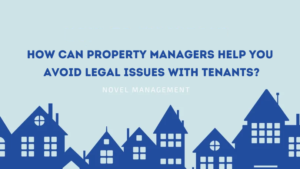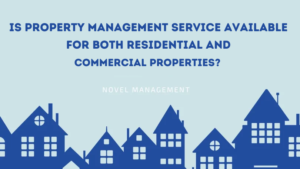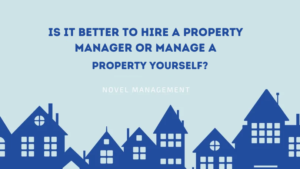The journey to becoming a do-it-yourself (DIY) landlord can be both rewarding and challenging. With the rise of rental markets and property management tools, many property owners are opting to manage their rentals independently. However, the role of a landlord extends far beyond just collecting rent. It involves thorough management, maintenance, tenant relations, and legal compliance.
Here are some critical mistakes to avoid as you embark on your journey as a DIY landlord:
1. Neglecting Legal Requirements
One of the most significant risks for new landlords is underestimating the importance of legal compliance. Different states have specific laws regarding rental properties, including tenant rights, eviction procedures, security deposits, and property standards.
Failing to adhere to these can lead to costly legal battles and fines. Ensure you understand your legal obligations by consulting with a real estate attorney or utilizing trusted resources to stay informed about the latest property laws.
2. Inadequate Tenant Screening
A common error DIY landlords make is not thoroughly screening tenants. Effective tenant screening goes beyond just checking a potential renter’s credit score. It includes verifying employment, checking rental history, speaking to references, and even a criminal background check. Investing time in comprehensive tenant screening can save you from many future headaches.
3. Underestimating Maintenance Costs
Maintenance is an ongoing responsibility that many new landlords underestimate. Regular upkeep and emergency repairs can significantly impact your profitability. To avoid unexpected costs, it’s wise to set aside a reserve fund specifically for maintenance.

Typically, allocating a small percentage of the property’s value per year for maintenance is recommended. Additionally, establishing relationships with reliable contractors and service providers can ensure that you get quality service at fair prices.
4. Failing to Create a Detailed Lease Agreement
A lease agreement is more than a document outlining rent payments; it’s a crucial tool for setting the terms of your tenant’s occupancy. Your lease should clearly define policies on pets, smoking, subletting, noise levels, and other critical issues. Ensure it is comprehensive and complies with local laws. Having a legally vetted and detailed lease agreement can protect both you and your tenants.
5. Not Treating It as a Business
Many new landlords fail to treat their rental activities as a business. This includes poor record keeping, informal rent collection methods, and lax communication. To manage your properties effectively, maintain professional relationships with tenants, keep meticulous records of all transactions, communications, and agreements, and establish a formal method for collecting rent.
6. Ignoring Tenant Relationships
Building a positive relationship with your tenants is crucial. Tenants who feel respected and valued are more likely to take better care of your property and comply with lease terms. Neglecting tenant communication can lead to unresolved issues and dissatisfaction, which can escalate into bigger problems. Regular check-ins and being responsive to tenant concerns can foster a positive landlord-tenant relationship.

7. Not Investing in Insurance
Many landlords overlook the importance of having proper insurance. Standard homeowners’ insurance might not cover all aspects of rental activity. Landlord insurance can protect you against property damage, lost rental income, and liability in case of accidents. Ensure you have sufficient coverage to safeguard your investment and your financial security.
8. Overlooking Local Market Conditions
Understanding your local real estate market is vital for setting competitive rent prices and marketing your property effectively. Ignoring market trends can lead to overpricing or underpricing your rentals, resulting in lost revenue or vacancies. Stay informed about local market conditions and adjust your strategies accordingly to remain competitive and attractive to potential tenants.
9. Not Regularly Inspecting the Property
Regular inspections are essential to ensure the property is well-maintained and to address issues before they escalate. Some landlords make the mistake of not inspecting their properties regularly due to time constraints or fear of disturbing tenants.
However, scheduling routine inspections can prevent larger maintenance issues and reassure tenants that you are committed to maintaining a safe and pleasant living environment. It’s important to give tenants proper notice before inspections to respect their privacy and comply with local laws.
10. Inadequate Rent Collection Systems
Implementing a reliable and efficient rent collection system is crucial for maintaining cash flow and minimizing late payments. Some DIY landlords rely on informal methods like cash payments or personal checks, which can lead to disputes and tracking issues.

Using digital payment platforms can streamline the process, provide transaction records instantly, and reduce the hassle for both landlords and tenants. Establishing clear payment terms and consequences for late payments within the lease agreement is also vital.
Why You Should Hire a Property Management Company Instead
While managing your rental properties can be rewarding, hiring a property management company offers significant advantages:
- Legal Expertise: These companies understand local and federal rental laws, reducing your risk of legal issues.
- Efficient Tenant Management: They conduct thorough tenant screenings and manage relationships, likely resulting in more reliable tenants and smoother operations.
- Maintenance Networks: Property managers have relationships with contractors and vendors, which can lead to faster, cost-effective service.
- Proactive Property Care: Regular inspections and maintenance by professionals help prevent small issues from becoming costly repairs.
- Effective Marketing: With better resources for advertising properties, management companies can reduce vacancy rates by reaching a wider audience and filling vacancies faster.
- Financial Management: They provide detailed financial reports and handle complex accounting, aiding in budget management and tax preparation.
- Personal Freedom: Hiring a property manager frees up your time, allowing you to focus on other investments or personal pursuits.
Bottom Line
Becoming a DIY landlord offers a great opportunity to generate passive income and build wealth through real estate. However, it requires dedication, proper planning, and a keen awareness of the responsibilities involved.
By avoiding these common mistakes, you can set yourself up for success, ensuring a profitable and sustainable venture in the rental market. That said, it’s best to work with a professional property manager in Miami. Contact Novel Management, and we’ll be happy to serve you!




